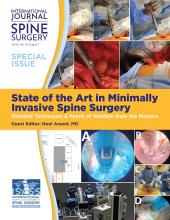Although the “one-size-fits-all” mentality may enhance the standardization of different areas of medicine, this concept must be carefully reconsidered in the surgical treatment of spinal disease. The diversity of spinal pathologies, differences in symptomatology for similar spinal conditions, patient-specific factors such as comorbidities, and multiple treatment options of mixed efficacy all impact the effort to standardize treatment. As a consequence, outcomes in spinal surgery can be inconsistent, and increasing acknowledgment of these issues has spawned the growth of personalized medicine with the hopes of improving outcomes. As we anticipate a health care landscape that introduces widespread performance-based reimbursements, there is a growing emphasis on providing individualized decision-making and surgical solutions. This includes the entire episode of spine care from preoperative optimization to customization of intraoperative implants as well as postoperative pain management and recovery.
For spinal surgery, personalized medicine in the preoperative phase can involve optimization of nutrition and bone health as well as computer-assisted preplanning of the surgery. With current technology, preplanning now allows for the production of patient-specific implants. Three-dimensional custom-printed implants tailored to an individual patient’s anatomy and biomechanical requirements can allow for minimal removal of surrounding structures and preservation of normal anatomy during implantation. This could optimize fusion and radiographic alignment. In the intraoperative phase, enabling technologies such as navigation and robotics can accurately place instrumentation to maximize safety and efficacy while minimizing radiation exposure to the surgeon and staff. Alternatively, three-dimensional–printed guides specific to each patient’s anatomy could be used. In the postoperative phase, pain management could consist of personalized therapies and medications specific to each patient’s individual characteristics, including genetic predisposition.
In this special issue of the International Journal of Spine Surgery, a variety of articles focusing on personalized medicine in spinal surgery have been carefully collated. These articles highlight recent advancements in enabling technologies and optimization strategies that form the basis of contemporary personalized medicine within spinal surgery. As spine care advances, the role of personalized medicine in spinal surgery will likely become more pervasive with the ultimate goal of improving outcomes.
Footnotes
Funding The authors received no financial support for the research, authorship, and/or publication of this article.
Declaration of Conflicting Interests The authors report no conflicts of interest in this work.
- This manuscript is generously published free of charge by ISASS, the International Society for the Advancement of Spine Surgery. Copyright © 2024 ISASS. To see more or order reprints or permissions, see http://ijssurgery.com.







